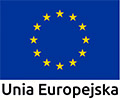The Righteous from the Treblinka area - Kazimierz Miłobędzki
Kazimierz Miłobędzki was born on 10 October 1919 in Sokołów Podlaski. In 1938, he started working in Warsaw as an apprentice at the Magistrate Court. When the war broke out, in accordance with the recommendations of the Polish Scouting and Guiding Association (ZHP) authorities, he went east with a group of scouts. This group was to reach Włodawa and perform auxiliary service there. The group did not reach Włodawa, but only Chełm Lubelski, where it performed various auxiliary functions. On the order of the scouting authorities, when the army withdrew from Chełm, he returned to Sokołów. When the Germans issued an order that everyone should appear in their places of work, he went to Warsaw. Since he was one of the youngest court employees, he was not re-employed.
In April 1941, Kazimierz Miłobędzki returned to his hometown. From 1 July, he received the job of the district administrator in the Litigation Trust of Secured Estates. This institution mainly dealt with Jewish estates. For this reason, he received a pass from the Office of Employment (Arbeitsamt) to the ghetto, thanks to which he was able to move freely around the city and take five Jews with him. His office was located in a building on Długa Street, to which there was an entrance from the ghetto and the Polish district. Kazimierz Miłobędzki’s duties included collecting the rent from everyone living in the ghetto and outside. Two Jews worked in his office: Perec Bocian – as the messenger, and Gołda Hochberg.
He used the opportunity to help Jews so effectively that he was the only inhabitant of Sokołów to receive the medal of the “Righteous Among the Nations” awarded by the Israeli Yad Vashem Remembrance Institute on 30 April 1999.
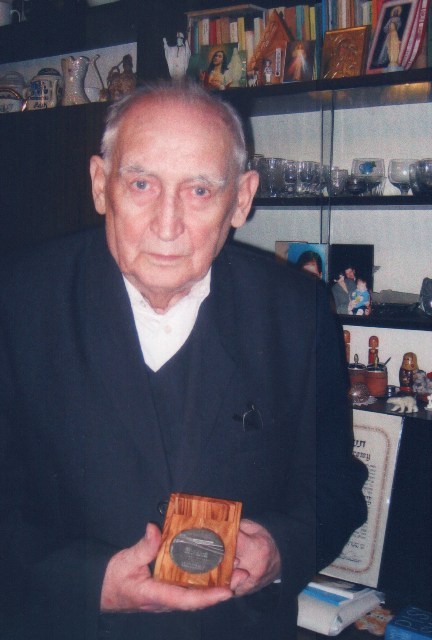
“Whoever saves a life saves the world”
Kazimierz Miłobędzki saved Dr Holcer’s cousin, Gołda Hochberg and Perla Morgensztern from extermination.
• Before the liquidation of the ghetto, Dr Holcer approached Miłobędzki with a request to send his cousin, who came from Łódź, to the so-called “forced labour”. She had fake identity card in the name of Korczak. Miłobędzki did not refuse to help and took her to Warsaw, and the next morning he escorted her to Skaryszewska Street, where there was an assembly point.
• Thanks to the help of his colleagues from the Office of Employment, Kazimierz Miłobędzki arranged for Gołda forced labour in Germany under the name of Franciszka Drewicz. She worked in an ammunition factory in Berlin in the district of Niederscheneweide Berlinerstrasse 24.
• Another rescued person was Perla Morgensztern, the granddaughter of Sokołów’s rabbi. Perla was a friend of Jan Wronkowski’s wife, an employee of the local government administration and the secretary of the Korczew commune. Perla belonged to the working party in Szczeglacin and she occasionally visited her friend Wronkowska in the camp, who was from Korczew. During one of these visits she lingered so long that she stayed there for the night. If it wasn’t for that she would have been killed that night, because the next day a whole group of four hundred Jewish workers were murdered in Szczeglacin. Jan Wronkowski gave her birth certificate in the name of Genowefa Głowacka, and Kazimierz Miłobędzki obtained a letter of referral for her to forced labour in the Third Reich.
All three women survived the war. After the war Gołda Hochberg and Perla Morgensztern returned to Sokołów. Gołda as a minor was taken care of by the International Jewish Organisation, which sent her to the United States. Perla married the last rabbi from Siedlce, Newman, and also left for the United States.
Moreover, it should be added that Kazimierz Miłobędzki supplied bread and food to a working group moved from the village of Czerkwisko to Szczeglacin. He also supported Jewish families in the ghetto by supplying them with food, especially potatoes, vegetables and, if possible, milk for children. This was possible due to the fact that his father, Stanisław Miłobędzki, owned a farm.
The Council for the Righteous Among the Nations at the Yad Vashem Institute of National Remembrance awarded Kazimierz Miłobędzki with a medal and an honorary diploma for selfless help to Jews during World War II, and his name was immortalised on an honorary plaque in the Park of the Righteous Among the Nations on the Hill of Remembrance in Jerusalem. At this point, it is worth quoting the words of Kazimierz Miłobędzki himself that explain what his selfless help involved: “I have never expected any reward. I did it all out of humane reasons only”.
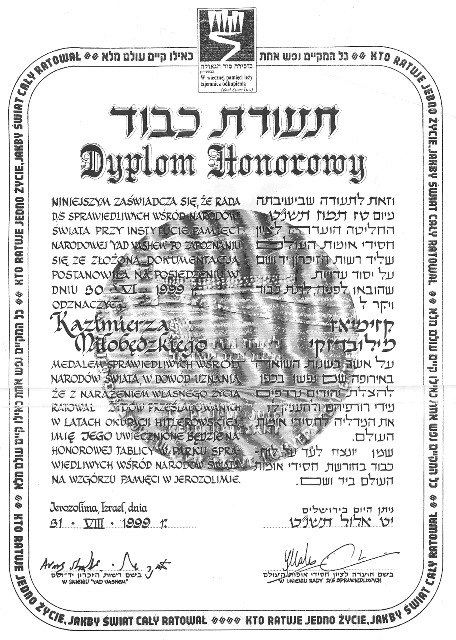
In 1945, Kazimierz Miłobędzki took an active part in organising the troops in Sokołów. After the end of the war he worked as the head of the “Ruch” delegacy in Sokołów, then in the WZGS “Samopomoc Chłopska” in Warsaw and Sokołów. He passed all levels of the troop hierarchy. He also participated in national scouting events (e.g. the World Scouting Meeting in Spała in 1938 and the World Scouting Meeting in Gniezno in 2000). He was a member of the Scouts Command, for many years he chaired the Scouts Audit Committee. He was a member of the Audit Committee of the Polish Scouting and Guiding Association Troop in Siedlce and the Troop Historical Committee. As an efficient organiser in many camps, he served as a quartermaster. On 17 July 2007, Kazimierz Miłobędzki died at the age of 88 and was buried in the cemetery at Chopin Street in Sokołów Podlaski.
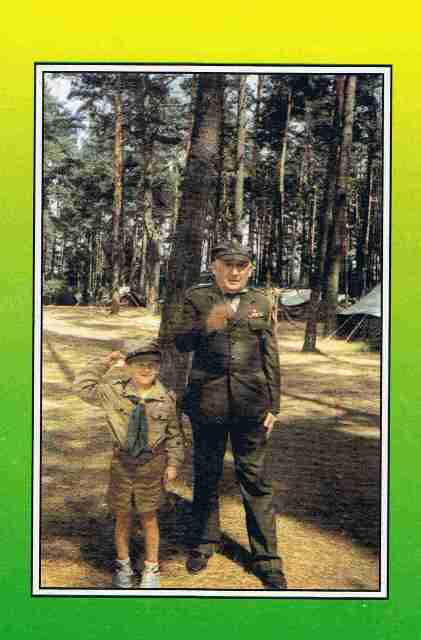
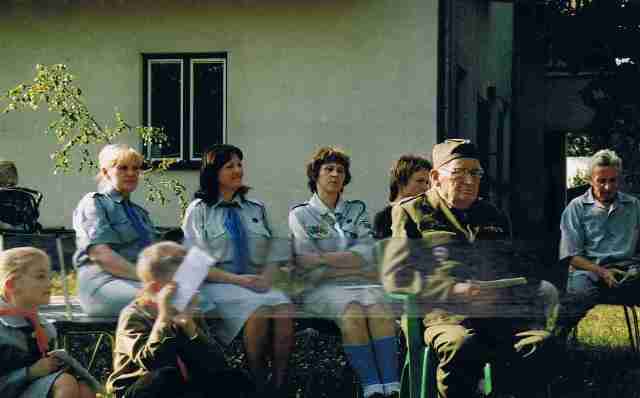
It is worth seeing a film dedicated to Kazimierz Miłobędzki, which was shot by the “U Siebie” Foundation operating in Sokołów Podlaski. You can watch the film on the website: http://www.civispolonus.org.pl/mapa/mapa.html
The materials were prepared on the basis of:
1. Rodzina Miłobędzkich [in:] Sokołowskie biografie ed. K. Matysiak, part II, Sokołów Podlaski 2006, pp. 87-89
2. K. Miłobędzki, Wspomnienia z getta w Sokołowie [in:], Bulletin 15, Sokołów Podlaski 2003, pp. 39-43
3. “Pieśń ujdzie cało…” Historia i legendy ziemi sokołowskiej, ed. Wiesławy Kwiek, Sokołów Podlaski 2008, p. 225
4. Information sent by Mrs Katarzyna Markusz from Sokołów Podlaski





